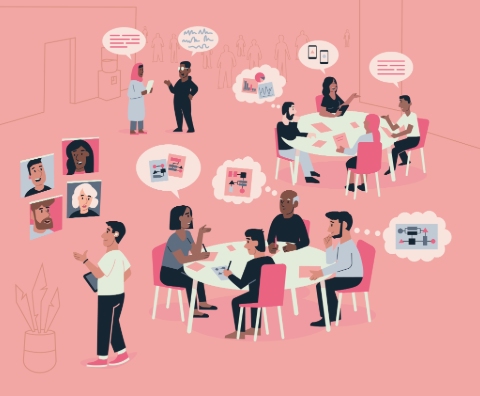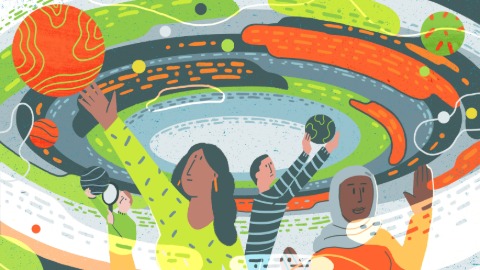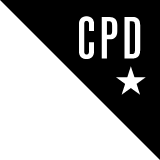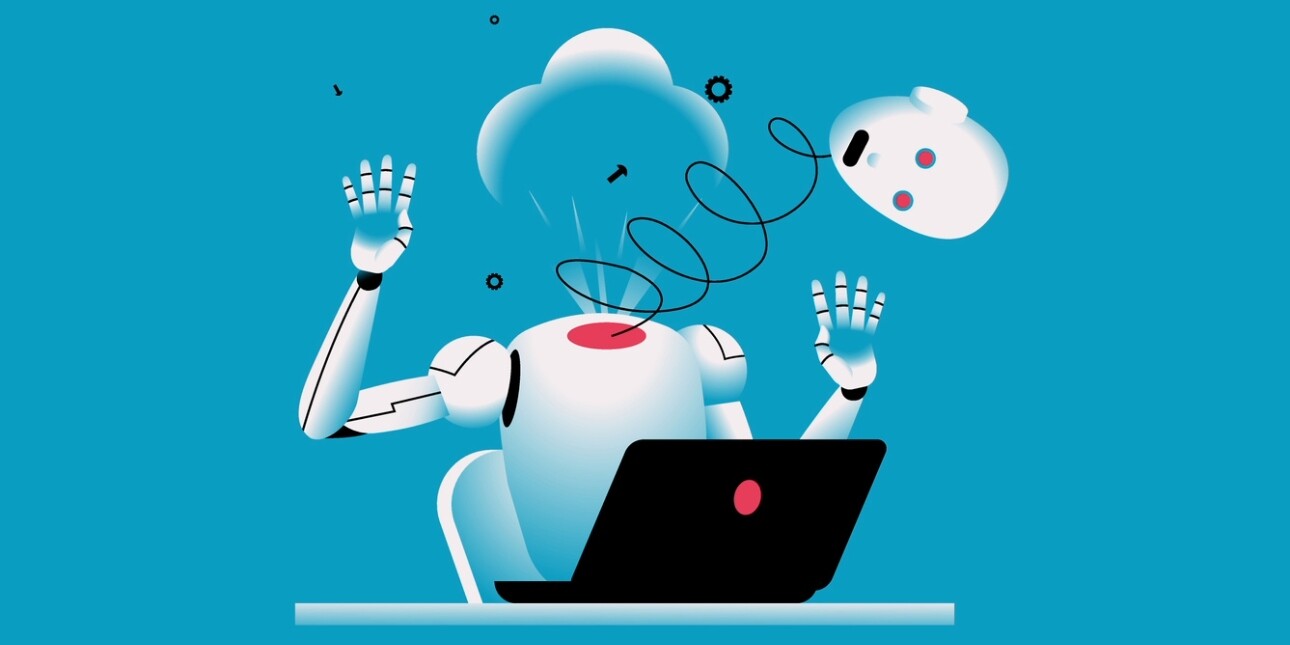How to make yourself irreplaceable in an age of AI
Artificial intelligence might be taking over many tasks in PR, but employees with storytelling suss, curation skills and ethical awareness will still be needed.
Today ChatGPT can draft a plausible press release in zero seconds flat. Tools such as Influencity can identify influencers for campaigns; some AI-powered deck generators can do the grunt work of developing pitches for journalists too. Then there’s the likes of Meltwater AI and Cision, which can monitor media in real-time.
Given 40% of tasks performed by PR professionals are now assisted by AI, many in PR might be wondering, ‘When will my job be next?’
Yet, even though white-collar PR roles are expected to be among the expected 9m jobs forecast to be “displaced” by AI by 2030, according to the World Economic Forum’s The Future of Jobs 2025, it’s not all doom-and-gloom: the same report also predicts AI will create 11m new roles – many of which don’t even exist yet.
Sure, many of these new roles will be in tech: prompt engineers, cloud architects, product managers. But many more are expected to be underpinned by the human ‘soft skills’ that AI can’t replicate. One Wiley Workplace Intelligence survey last year found 80% of workers said the advent of AI has made soft skills such as creativity and empathy more important. They’re also in demand: today, the UK’s creative industries – the sector which arguably uses soft skills the most – employs 2.4 million people, a sharp rise from 1.9 million people 10 years ago.

(Creative Commons Attribution-ShareAlike 4.0 International.)
Influence asked PR and comms trainers to explain the skills that they believe professionals will need to thrive in the years ahead…
Creativity
Why it’ll be essential: Muckrack’s State of AI in PR 2025 report revealed 82% of PR professionals now use AI for ideation/brainstorming. But as PR leadership training specialist and executive coach Dannie-Lu Carr points out, this will only lead to groupthink and a homogenisation of ideas: aka bad for the boundary-pushing innovation behind the best campaigns. “AI isn’t bad at generating ideas, but if everybody working on a campaign used it [for ideation], it’ll end up being like an echo chamber,” she says.
How PR professionals will use it: The campaigns which are likely to resonate and garner coverage are those with a ‘wow’ factor. Outside-the-box and stream-of-consciousness thinking based on human experiences and emotions is likely to fare better in brainstorming sessions, rather than ideas sourced from AI (which uses existing patterns/data and is unlikely to throw up concepts with surprise or challenge the status quo).
Storytelling
Why it’ll be essential: Last year, Scott Galloway – the US marketing professor and tech soothsayer – gave the following advice earlier: "If I could give my 13- and 16-year-old one competence that I think would stand the test of time, it’d be storytelling”. Because AI platforms are always changing (Galloway: “We don’t know if in five years some neural network is going to replace ChatGPT), he believes “an ability to write well, an ability to articulate ideas and an ability to present ideas with data, infographics, slideshows” is a timeless, tech-proof skill.
Where PR professionals will use it: Human brains are hardwired for narrative. Knowing how to structure a story arc will be essential for crafting press releases, blogs, social media posts and campaigns – whether this content has been crafted by AI or not.
Taste and curation
Why it’ll be essential: “AI will flood the market with content, making the ability to identify what's genuinely compelling, relevant and worth the audience's attention a premium skill,” says Caroline Rae, founder of professional training firm Fiorlo. “Quality curation will separate the mediocre from the exceptional.”
How PR professionals will use it: Agentic AI might write content, but it will be a human who’ll be cherry-picking the quotes, paragraphs, trends and ideas which reflect the client’s voice or resonate with audiences. Says Rae, “PR professionals who become ‘intelligent filters’ will develop frameworks for critically evaluating AI content against brand values, audience needs and strategic objectives. This will enable them to build more trust in their brands and its consumers.” The New York Times recently suggested that people could be employed as ‘AI personality directors’, helping shape a brand’s ‘AI personality or tone-of-voice: a role that PR professionals could do easily.
Critical thinking
Why it’ll be essential: Offloading your thinking to generative AI – as 92% of British undergraduates do with their assignments – might result in time-savings, but PR professionals may come a cropper if they’ve failed to develop their critical thinking skills, especially when making the kind of sophisticated decisions that AI can’t. “Younger generations take AI as gospel,” says Carr. “But if a customer asks a question about the [AI-generated] content you’ve put out, how would you know what you’ve just posted? Or whether it aligns with the company’s values?”
How PR professionals will use it: When the unexpected happens. The human judgment that comes from finely tuned critical thinking will be needed for signing off AI content, plus preventing messages from being misinterpreted, responding to negative press, or pivoting a comms strategy during a social media meltdown.
Adaptability and agility
Why it’ll be essential: “Comms professionals can be pulled in all directions with requests coming in from all areas of an organisation. AI software can plan a workflow or book jobs into diaries, but can it identify the activities that will get us closer to our goals?” says Rachel Foster, director, Agile PR.
How PR professionals will use it: “[Human] Planning will still be essential, particularly for goal-setting and understanding where we need to deliver value, but also where we need to build flexibility into all plans and capacity so we can respond to curveballs,” says Foster, who suggests PR professionals should adopt a mindset “of being curious, horizon-scanning for what’s coming and working to evolve our practice. How are we making small, incremental gains every day?”
Resilience
Why it’ll be essential: AI is a rapidly evolving beast with Demis Hassabis (the head of Google’s DeepMind) recently predicting it’ll be “10 times bigger than the Industrial Revolution, and maybe 10 times faster.” As such, Rae says PR professionals will “need to adapt to new tools and situations while maintaining performance under pressure.” She also warns workers will need to understand what fuels and drains their resilience so they can consciously protect and replenish their reserves” otherwise it could be a “recipe for chronic stress and burnout.”
How PR professionals will use it: “Resilience will help PR pros have more capacity to navigate AI-related challenges - from learning new tools, to the increased expectations for speed and efficiency that AI capabilities bring, to managing AI generated content issues in campaigns,” says Rae.
Relationship-building
Why it’ll be essential: The most successful PR campaigns involve balancing a complex web of interpersonal dynamics. For example, a product launch might be a hit with customers, but the client might be unhappy because it doesn’t sync with investors’ expectations. “The ability to build genuine human connections and long-term trust with journalists, influencers, clients and stakeholders will become a key differentiator – PR professionals will need to invest more time in this,” says Rae. Put simply, AI can’t bring disparate groups of people together, make them feel heard or care. PR professionals can.
How PR professionals will use it: “Influencing skills such as being able to read a room, listening for what's not being said and adapting communication styles in real-time will become invaluable,” says Rae.
Ethical judgement
Why it’ll be essential: AI still needs serious human vetting: one 2025 BBC study found more than half of AI-generated answers had “significant issues” such as factual errors and misleading content. Carr recently used Claude to research Naomi Wolf’s The Beauty Myth and was staggered when the AI tool returned a stream of anti-feminist information. “There’s often bias in AI: sexism, ageism, racism, plus misinformation,” says Carr. “PR professionals will need that critical judgment to be vigilant around this.”
How PR professionals will use it: Rae envisages PR pros become “ethical gatekeepers: guarding against potential bias, cultural issues and brand misalignment… They will also need to make judgement calls about transparency of AI use, authenticity of brand voice and values in AI content. PR professionals also need to guide clients, who may be less AI fluent, to consider the broader impact on society, such as crisis comms where the AI responses may be technically correct but ethically questionable.”

(Creative Commons Attribution-ShareAlike 4.0 International.)
How can PR jobseekers future-proof themselves in an age of AI?
UK graduates are facing the toughest job market since 2018, with employers pausing hiring and using AI for tasks typically undertaken by entry-level hires. It’s no different in PR where AI systems can easily do novice-style tasks such as media monitoring or updating spreadsheets.
Rae’s advice to younger PR professionals? “Focus on developing distinctly human skills that complement rather than compete with AI. Look for roles that emphasise client interaction and relationship management and [to engage with] peers, managers and leaders you can learn from. Learn to work with AI tools and hone your critical thinking skills when it comes to their outputs. Develop expertise in emerging areas like AI ethics in communications and human x AI collaboration processes and workflows.”
Younger professionals have one big advantage, adds Rae. “They have something bosses don't: native digital fluency – an intuitive understanding of how people consume content across platforms. This comfort with new tech is an advantage they'd be wise to harness!”
How can older PR professionals future-proof themselves in an age of AI?
“Mid-career PR professionals’ careers will be redefined by AI,” says Rae. “The way to thrive is to lean into areas where experience and judgment are irreplaceable - strategic counselling, crisis leadership and complex stakeholder management. Invest in understanding AI capabilities and limitations to better direct and quality control AI-assisted work.”
With Covid, remote working and rising social anxiety having stunted the social skills of younger professionals (see Forget screens, gen Z wants to network in person), Carr says experienced PR professionals have a responsibility to mentor or help develop their AI-proof soft skills. “We’ve got to create opportunities for younger PR professionals to shadow, be around other staff and help organise events,” says Carr. “At the moment, they’re on an island – we need to give them a boat.”
Adopting a positive attitude towards AI also helps. “While your AI fears may well be valid, becoming a paid-up AI doomer isn’t going to benefit you or your career,” says Rae. “View AI as a powerful aid which frees you up to focus on creating meaningful connections between brands and people.”
Ultimately, perhaps one of the most useful soft skills is self-vigilance. “It’s all easy for us to get lazy and be like, ‘Oh, I’ll just ask the AI’,” says Carr. “The next time you catch yourself doing it, just shut the laptop instead.”
- Want to develop the skills that will set you apart? Check out the CIPR's full programme of personal development courses taking place soon.

Christian Koch is an award-winning journalist and editor who has written for the Sunday Times, Guardian, Evening Standard, Metro, Director, Cosmopolitan, ShortList and Stylist.
Further reading
Where will all the senior writers come from if AI is the new junior?
Why earned media is so powerful in the age of AI and GEO
Is AI stopping young PR professionals from building essential skills?
Rethinking reputation management in the age of AI


